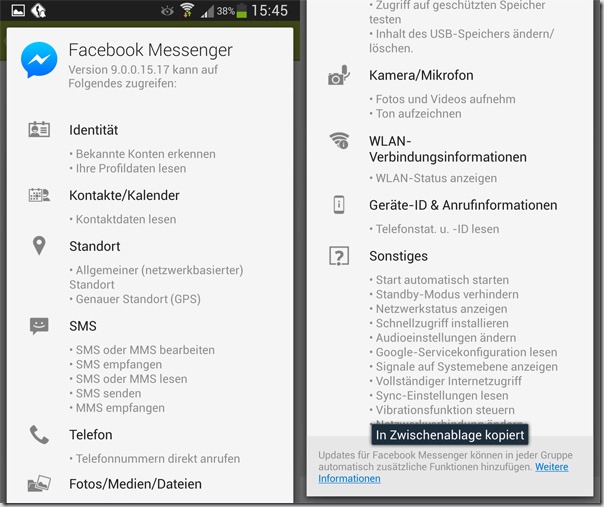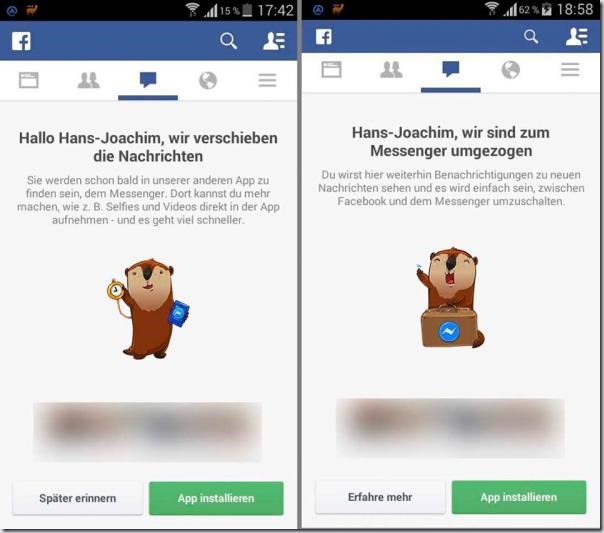Facebook's new messenger app is scaring many users with its possible access. The app was developed to complement the current Facebook mobile app. The majority of the questions asked deal with various consents that the app requires in order to work correctly and what effects this can have on the user's protected privacy.
First of all, it is true that the messenger app requires a ton of consents and a large number of users are worried about this. This is mainly due to their wording.

All Android users must first give the amount of consent. Here, complete consent is required from users before an app can be installed that potentially requires access to various functions. IOS, on the other hand, only asks for the user's consent at the appropriate time, i.e. when access is actually to take place.
Too many hits?
While many users are quick to claim that the app requires too much access and call on others to avoid it, there is still a lot of confusion about how secure the messenger actually is. We want to clarify what this is about here.
Most of the confusion comes from the way the consents (see above) are worded. However, many people don't know that these were not written by Facebook itself, but by the developers of the Android platform.
These are written to represent the most severe, impactful scenario. For example, it is said that the app can create sound, image and video recordings. This means that the app theoretically has the option to do this, but not that it does or wants to do it at any time.
Ergo
The reason why the messenger needs this consent is that access to the microphone is required in order to make calls from the app to the contact list. It's not because Facebook plans to feast on the recordings, as the wording might suggest.
The following photo shows the screen on the left that announces that the time will soon come. By clicking on the left button you will be sent your usual messages for 7 to 10 days. There is no escape from the picture on the right. The app's messenger function is disabled.
To put it simply:
I want to send a friend a picture that I just took.
I may have to save the photo. Then I open the messages in FB (whether browser or app), select my friends, upload the picture, write the text and off I go. Messenger does that too. In order to access the camera, he needs the right to do so; the same applies to writing and reading the photo file in the memory. If I want to call my friend via Messenger, Messenger needs permission to access my contacts and phone. The example can be logically continued with any right the messenger wants to have. (Many thanks to Hans-Joachim T.)
If you look a little more closely at the respective consents, you will notice that the app requires consent in order to function properly.
Potentially all fears are possible
So that means that consent can certainly be unsettling. As explained, this is written for the most extreme case and does not always reflect what the assumed benefit behind an application is. Many other apps, such as Instagram, Google or Whatsapp, require the same consent to function properly on the device.
Ultimately, every user has to decide for themselves whether they trust the developers to handle their data responsibly.
And if that's not the case, then he won't install the app in question.
Authors: Larissa & Andre, mimikama.org
Notes:
1) This content reflects the current state of affairs at the time of publication. The reproduction of individual images, screenshots, embeds or video sequences serves to discuss the topic. 2) Individual contributions were created through the use of machine assistance and were carefully checked by the Mimikama editorial team before publication. ( Reason )


